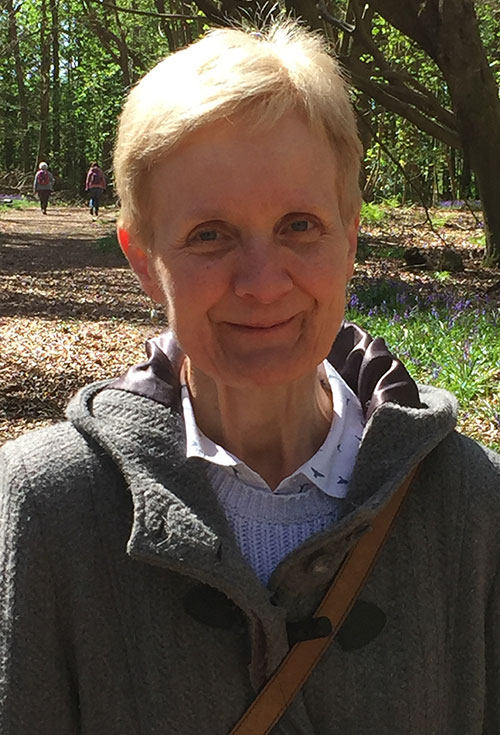Susan Stevenson

It was 1983. The first pound coins were issued; Return of the Jedi hit the cinemas; and a twenty-nine year old minister’s wife in Birmingham came out as being called to ministry. Except, of course, we wouldn’t have talked about ‘coming out’. A lot has changed in thirty-five years.
It had taken a long time for me to recognise that call, partly because I had no concept of a woman minister. The Anglicans didn’t ordain women priests until 1994, and at that stage I hadn’t heard of Violet Hedger.
In truth I was also wrestling with a sense of guilt, not so much theologically as culturally. Why could I not be content just being Peter’s wife? Did I not value our young family? Both of those questions were voiced more than once, which hit me hard. Eventually it became even more uncomfortable resisting God, than suffering some people’s disapproval.
Ministerial Recognition and Training followed. Then Settlement, and a courageous church in South London called us as joint-pastors; unusual for those days and their idea. Five years later Peter was called to Spurgeon’s and the church invited me to stay on as sole pastor.
I’ve never been keen to argue the case for women’s ministry, as it can feel like self-justification. I’ve always believed that if this is the call of God, then God will authenticate it.
Amazingly God did, and together as a church, by God’s grace, we experienced years of growth in so many ways. Then after nearly eighteen years I knew it was time to leave, although it broke my heart to do it. To be honest, I was aware that I’d not get the opportunity again as women are rarely given the opportunity to lead large and growing churches.
A lot has changed since then. When I was first ordained I could probably have named every female serving Baptist minister. Now there are so many more it’s a more encouraging picture. Yet lots of things haven’t yet changed. Currently I serve as a Regional Minister in South Wales and on those occasions when I’m substituting at meetings of Regional Team Leaders, I help to double the female presence.
When people comment on the gifts I bring to ministry, they talk about relationality, the gift for growing networks, the ability to live without knowing the exact destination of our direction of travel. All these gifts are characteristic of women’s leadership. They are also the very gifts which are essential as we negotiate the contours of our place in God’s mission. There is need for more change yet.
And how does change come? Recently I received a letter from someone I hadn’t seen for over a decade. ‘Thinking back’, it said, ‘to when I was attending Chatsworth as a teenager it was incredibly empowering to see a woman, wife and mother leading a church community.’
I’m so grateful for the women (and men) who responded to God’s call to ministry during my time in London. I’m equally grateful for those I have had the privilege of walking with here in Wales. If my being what God has made me to be can in any way encourage them to be who God has made them, then ‘Hallelujah’.